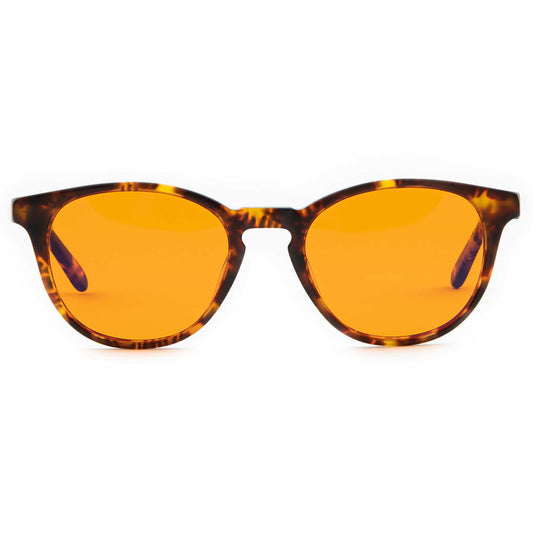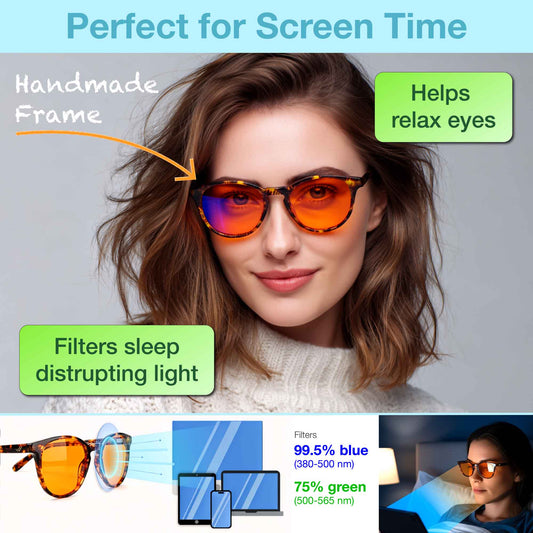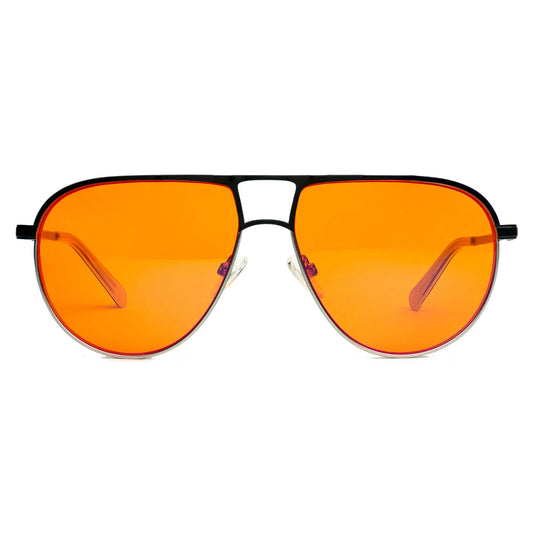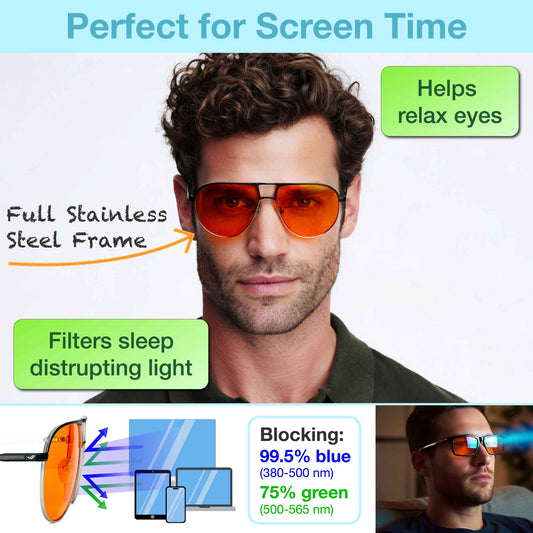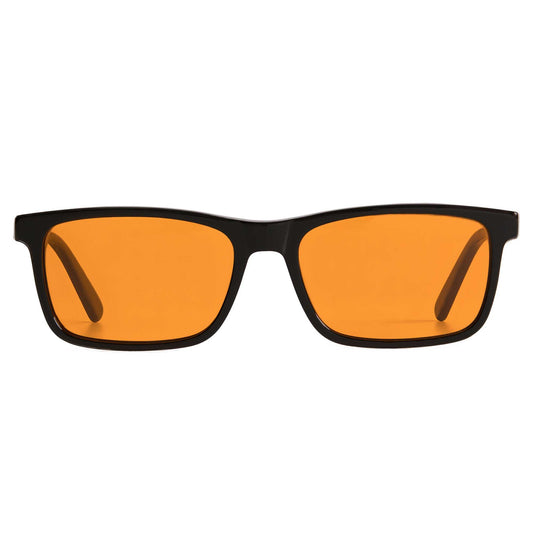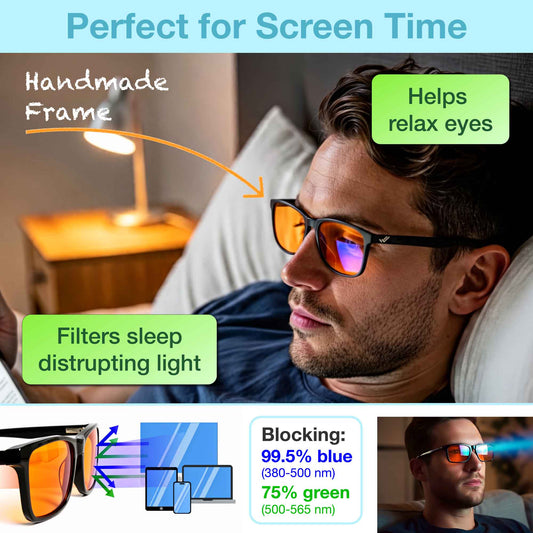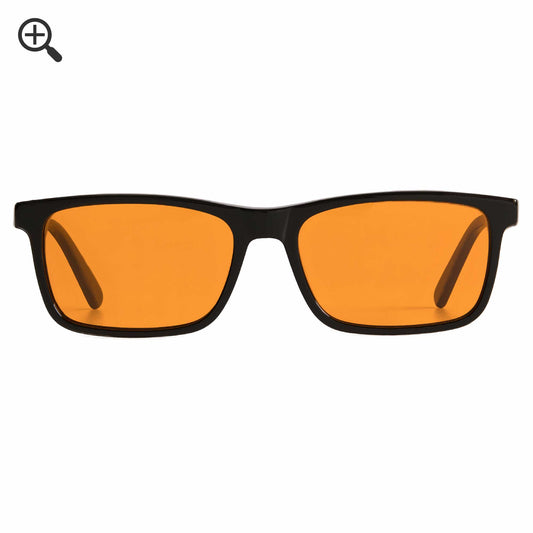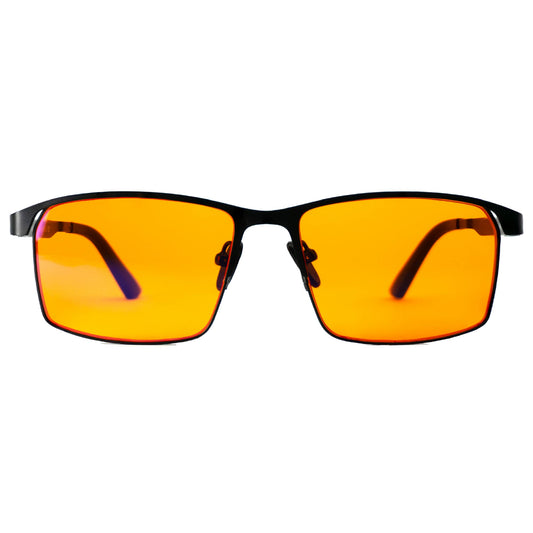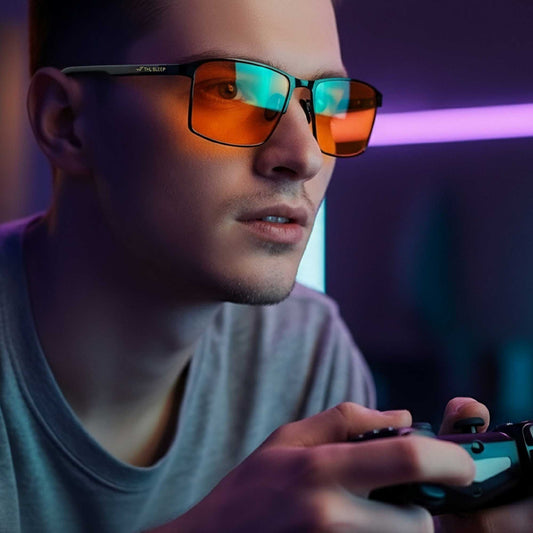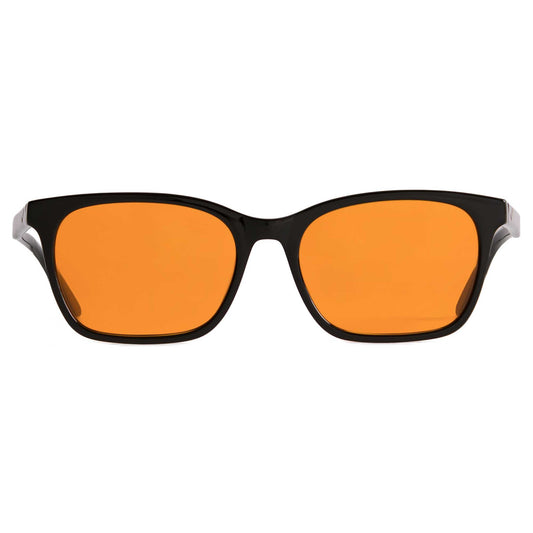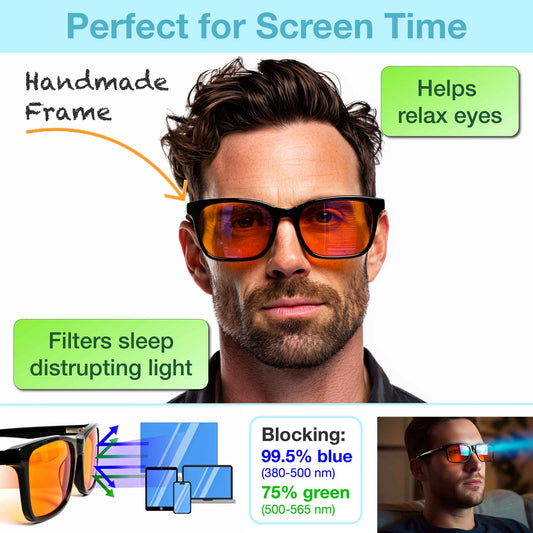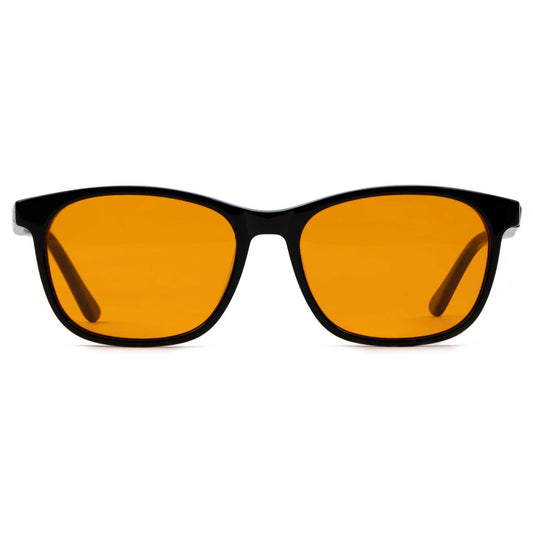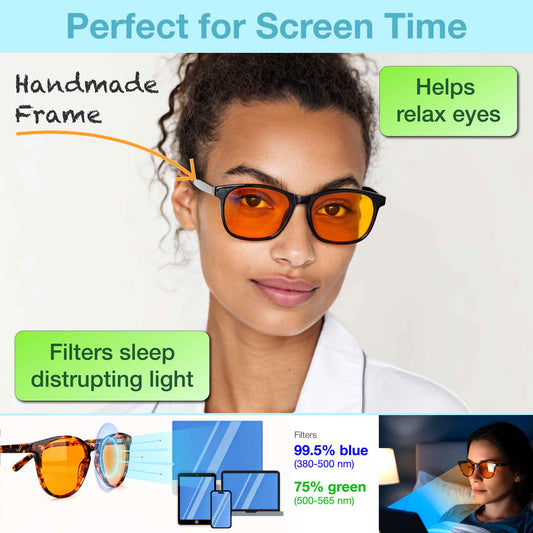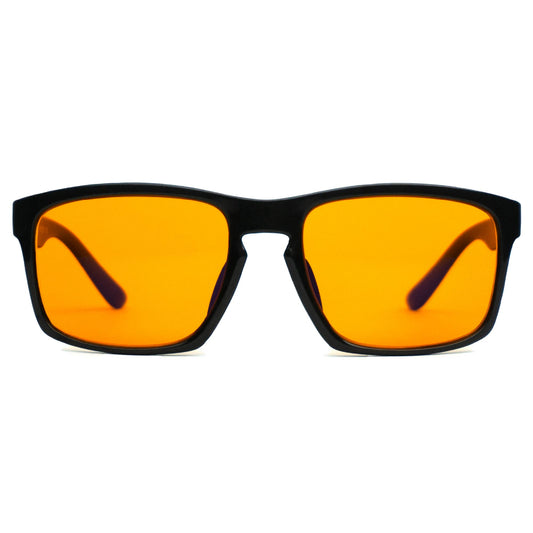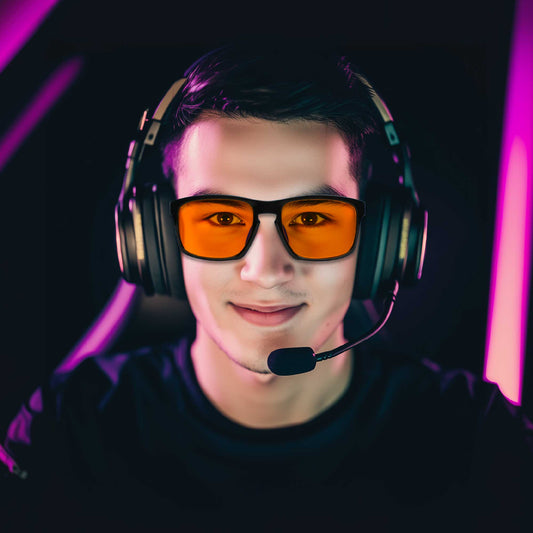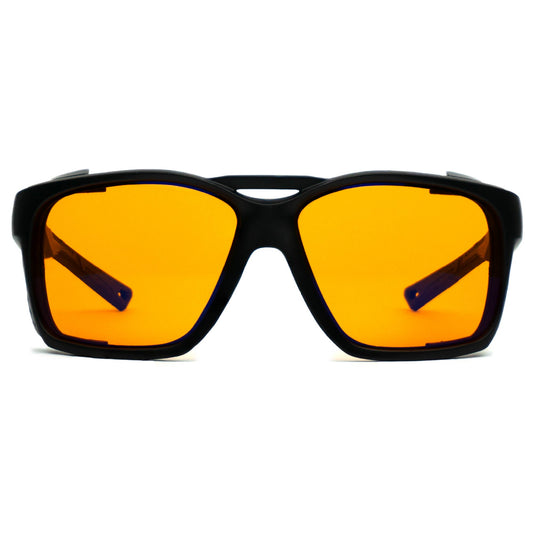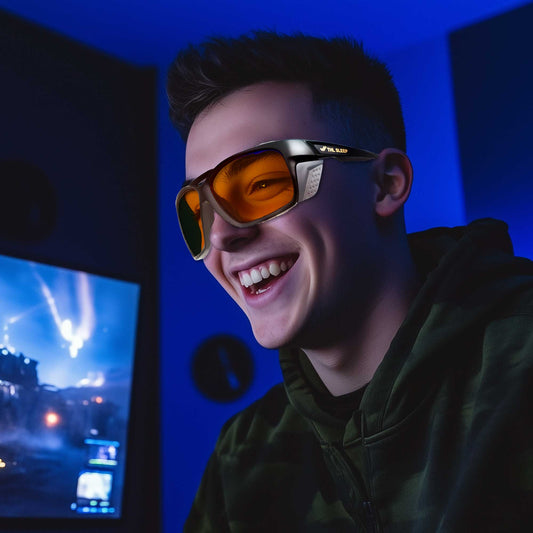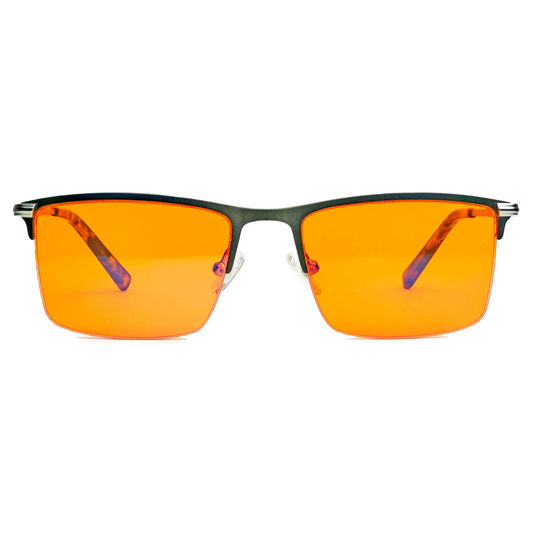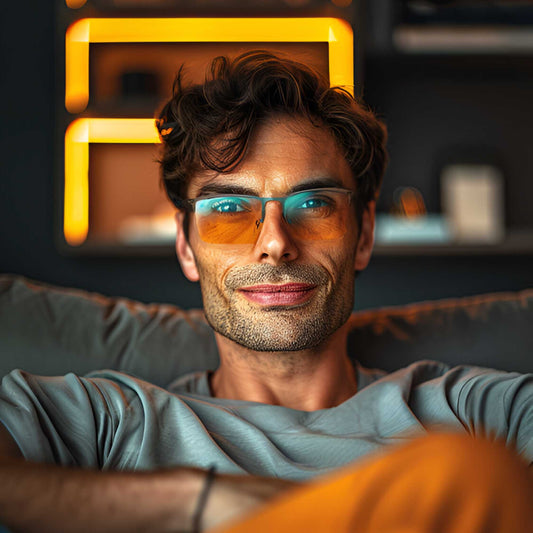(10-minute read)
Blue light and sleep. Quality sleep is one of the essential aspects of good health.
In our digital world, people tend to sleep less due to easy access to entertainment and late-night work sessions.
In the quest to get back to restful sleep, blue light glasses that are specially developed for sleep are a powerful tool.
The overuse of digital devices in our daily lives risks putting unnecessary strain on our eyes. I am sure you are familiar with this.
Maybe you have felt the itching and burning sensation in your eyes at the end of a long, stressful day at the office after staring into a screen for hours.
This is only one part of the puzzle, as most of us seem to sleep for fewer hours than before.
How does blue light affect sleep?
Blue light and sleep do not go well together.
This fact has been demonstrated in study after study. The suppressing and delaying effect on melatonin sleep hormone levels because of late-night blue light exposure is well-known.
When your eyes are exposed to blue light just before bedtime, your sleep hormone levels get reduced as your body adapts to a signal to stay awake.
The blue light rays are registered by special photoreceptors in the eyes, whose sole purpose is to set the biological clock and regulate wakefulness.
Why does blue light affect sleep?
When flooded by blue light, cortisol and other so-called wake-up hormones do not reduce at night. Cortisol levels are at the maximum in the morning to help you wake up.
The levels are then supposed to drop close to bedtime to give way for sleep hormones to induce sleepiness.
The issue blue light is so bad for you at night is that this villain keeps this balance out of control; it keeps you awake and makes it harder to fall asleep.
How blue light glasses help you sleep better
It is easy to see why there is a strong connection between blue light and melatonin.
Your inner 24-hour biological clock wants you in your best condition and influences many functions in the body.
Blue light glasses are a great tool to help you get ready for sleep without you having to put away your smartphone or laptop or stop watching TV. This type of glasses can be worn with ease at home or on a night out.

A quality pair of blue blocker glasses removes 100% of the melatonin-suppressing light in the blue and green light spectrum. Orange lenses are the best option, as this type of lens gives you the best performance and clarity.
What are blue light glasses for sleep?
Blue light computer glasses are a complete science.
There is a reason the best blue light glasses have orange lenses. It is all about performance and clarity.
All blue light and a large part of the green light spectrum have to be filtered out to give you better sleep. It is these parts of the light spectrum that affect your night sleep.
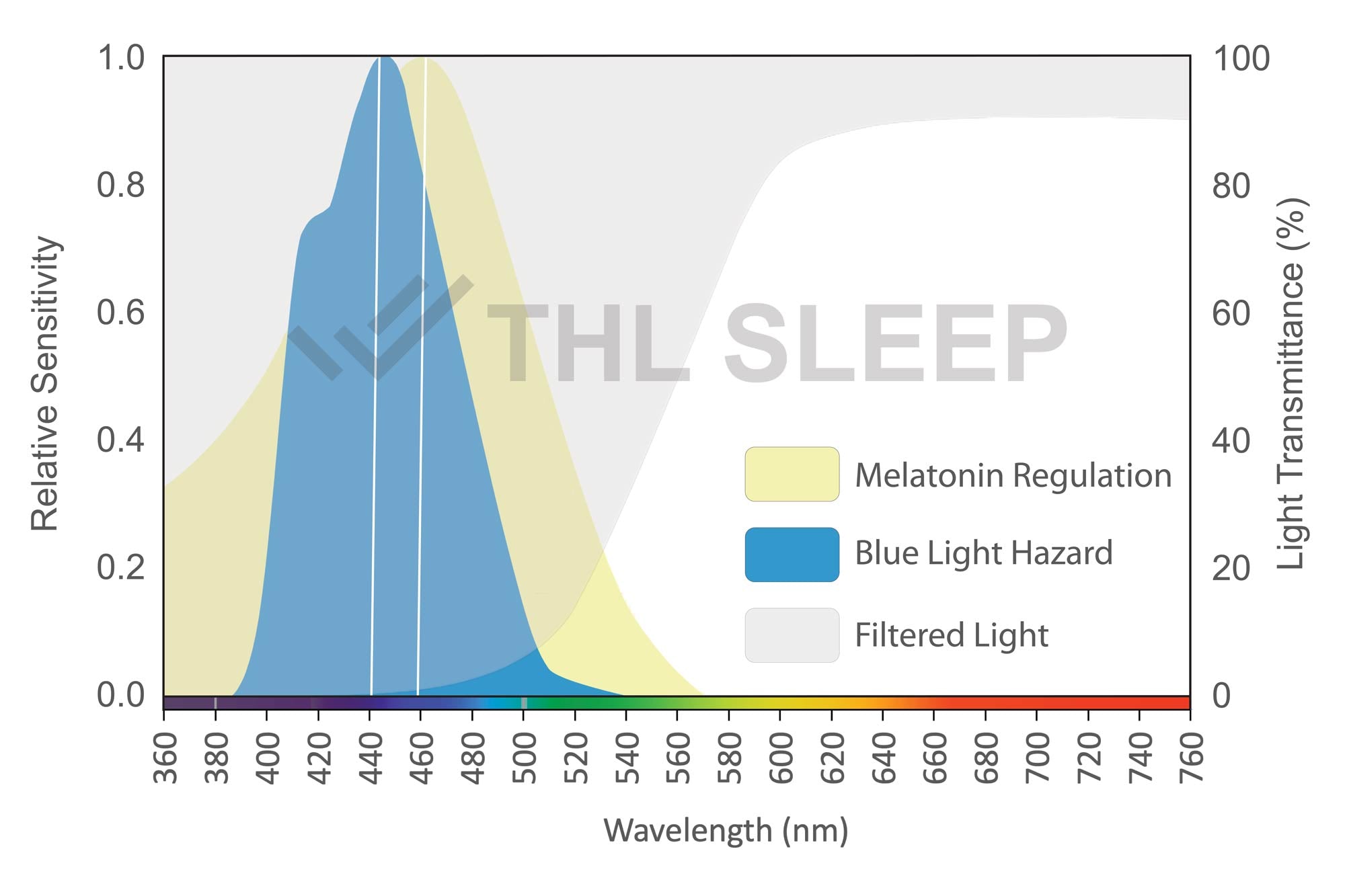
This area is called the melatonin disturbance zone, seen in yellow in the graph above. As the name suggests, melatonin will be altered if light rays from this interval reach your eyes unfiltered.
Yellow lenses get disqualified from sleep improvement, as these only can block out 65%–70% of all blue light. They cannot filter out all melatonin-disturbing blue light.
What are not blue light glasses for sleep?
As you know, there are many different types of computer glasses and blue light glasses on the market. Some are marketed as improving sleep without even being able to block 30% of blue light.

The maximum amount of blue light that a clear lens can block out is 30%. Computer glasses will not be enough if you are aiming for a sleep boost. This type of blue blocker is suitable for full daytime use at the office, as it can reduce eye strain.
Minimal color distortion makes them a popular choice.
Premium clear blue cut lenses with anti-reflective coatings are costly to manufacture. This means that any computer glasses cheaper than US$40 likely lack these essential features.
So, make sure to buy yours from a good brand that stands for quality and uses premium materials, such as acetate.
Summary
If your sleep is of the highest priority, you should always reduce blue light exposure at night.
The first option to get the best night's sleep is to completely stop using your smartphone or other digital devices at least one hour before going to bed.
If you want to stay connected and productive late at night, make sure to invest in a premium pair of blue light blocking glasses.
The glasses have to be specially developed for sleep improvement to work.
Clear or yellow lenses are not able to filter out enough blue light to support your sleep hormone levels.
Share this article to help others improve their sleep naturally.
Happy Deep Sleep,
Oskar Eriksson, M.Sc.
The Sleep Engineer™





